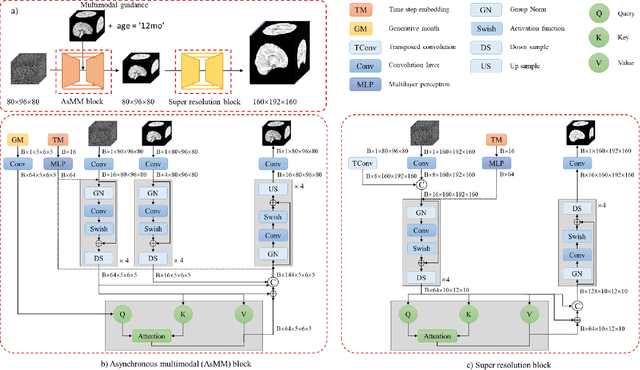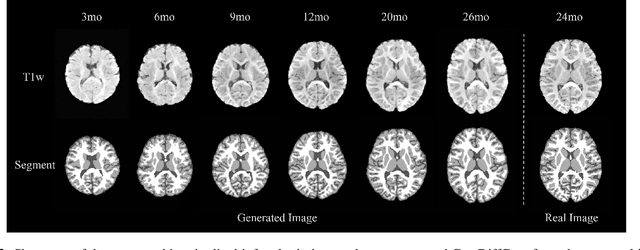Siyan Han
Cas-DiffCom: Cascaded diffusion model for infant longitudinal super-resolution 3D medical image completion
Feb 21, 2024



Abstract:Early infancy is a rapid and dynamic neurodevelopmental period for behavior and neurocognition. Longitudinal magnetic resonance imaging (MRI) is an effective tool to investigate such a crucial stage by capturing the developmental trajectories of the brain structures. However, longitudinal MRI acquisition always meets a serious data-missing problem due to participant dropout and failed scans, making longitudinal infant brain atlas construction and developmental trajectory delineation quite challenging. Thanks to the development of an AI-based generative model, neuroimage completion has become a powerful technique to retain as much available data as possible. However, current image completion methods usually suffer from inconsistency within each individual subject in the time dimension, compromising the overall quality. To solve this problem, our paper proposed a two-stage cascaded diffusion model, Cas-DiffCom, for dense and longitudinal 3D infant brain MRI completion and super-resolution. We applied our proposed method to the Baby Connectome Project (BCP) dataset. The experiment results validate that Cas-DiffCom achieves both individual consistency and high fidelity in longitudinal infant brain image completion. We further applied the generated infant brain images to two downstream tasks, brain tissue segmentation and developmental trajectory delineation, to declare its task-oriented potential in the neuroscience field.
 Add to Chrome
Add to Chrome Add to Firefox
Add to Firefox Add to Edge
Add to Edge